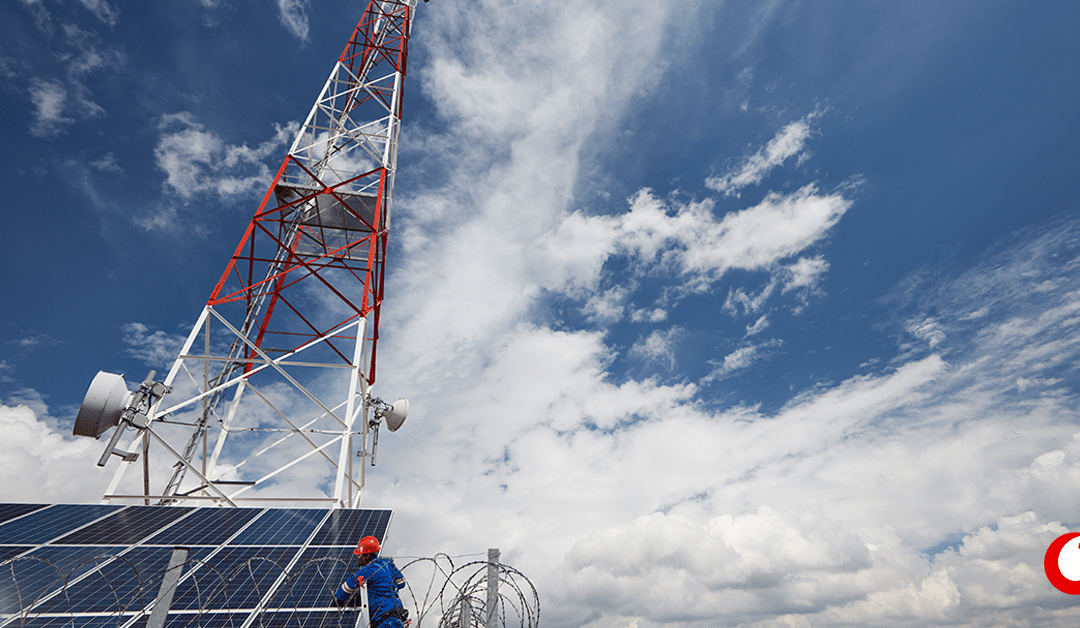Vodacom KwaZulu-Natal Region announced today that it is rolling-out the fastest and latest, fifth generation (5G) network in key municipal districts in KwaZulu-Natal province. The 5G network is currently available on 156 live 5G sites across the KwaZulu-Natal province and supports both mobile and fixed wireless access services. Vodacom customers with 5G enabled devices, and within a 5G coverage area, are now able to access the new 5G network in KwaZulu-Natal. Critically, the latest mobile networking technology will ultimately help the region bridge the digital divide between the urban and rural areas of the province by extending access to affordable mobile broadband, especially as an alternative to fiber connectivity in underserviced township areas.
In May, Vodacom switched on South Africa’s first live 5G mobile network in three cities – Johannesburg, Pretoria and Cape Town. This network supports both mobile and fixed wireless services and is currently available in Gauteng and in Cape Town. Vodacom will accelerate 5G network rollout after additional 5G spectrum is auctioned at the end of March 2021.
To launch the 5G network in KwaZulu Natal, Vodacom used the temporary spectrum assigned by the Independent Communications Authority of South Africa (ICASA), including 1×50 MHz in the 3.5 GHz, 2x10MHz and 700MHz. Vodacom has decided to use the 700 MHz band for wide scale mobile, 5G coverage and is supplementing network capacity with 3.5 GHz where required.
Vodacom South Africa CEO Balesh Sharma says: “Vodacom now offers the widest 5G network coverage in KwaZulu-Natal and we expect to expand our national 5G footprint significantly once we get access to new spectrum. We are confident that the rollout of 5G will help us to bridge South Africa’s digital divide in the long-term by promoting digital inclusion. As a more efficient technology than its predecessors, 5G is designed to more efficiently meet the rapidly increasing connectivity requirements of modern society. The widespread rollout of 5G will support Government’s 4IR objectives in future, and will facilitate the creation of an entirely new technologically enabled world.”
As part of the first phase, the region has deployed 5G in eThekwini, Pietermaritzburg, Howick, Richards Bay, Ntuzuma, Umlazi and KwaMashu. The Vodacom KwaZulu-Natal region saw a surge in data traffic from the end of March, with accelerated growth of 40% due to the Covid-19 pandemic.
Short for the ‘fifth generation’ wireless mobile network, 5G is the newest iteration of our global mobile networking standard. It promises much higher download and upload speeds, lower latency (the time it takes for a connected service to respond to your command) and far greater capacity, speed and increased coverage.
5G offers three major advantages:
- Speed: 5G is around 10 times faster than 4G. It’s designed to work at average speeds of 150-200Mbps, and peak speeds can reach above 1Gbps. This means people will be able to download a full 4K film in around 3 minutes (compared to over 15 minutes on 4G).
- Low latency: latency is the time it takes for a device connected to an online service to respond to your inputs or instructions, otherwise known as lag. Reducing this time lag is crucial in making, say, virtual reality (VR) and augmented reality (AR) applications faster to respond.
- Huge capacity: this just means that it can handle lots of people and services accessing the network at the same time, even in densely populated areas.
Given these advantages, here are some of the things 5G network can deliver:
- High 4k and 8K video quality movies, cloud gaming, remote education and remote healthcare.
- Download movies much faster and stream games without any interruptions.
- Carry out remote surgery in near real time using robotic arms.
- Benefit from AR guidance and training via smart glasses or car windscreens.
- Help drones co-operate in emergency situations.
- Enable smart city infrastructure (such as traffic lights) more efficiently.
- Provide faster speeds and this increase in speed will allow IoT devices, including those with healthcare and industry applications, to communicate and share data faster than ever.
5G devices are expected to become more quickly accessible to South Africans in future. Already we are seeing the introduction of increasingly cost effective 5G enabled smartphones around the world, not just in the premium segment but also in the mid-tier segment.


